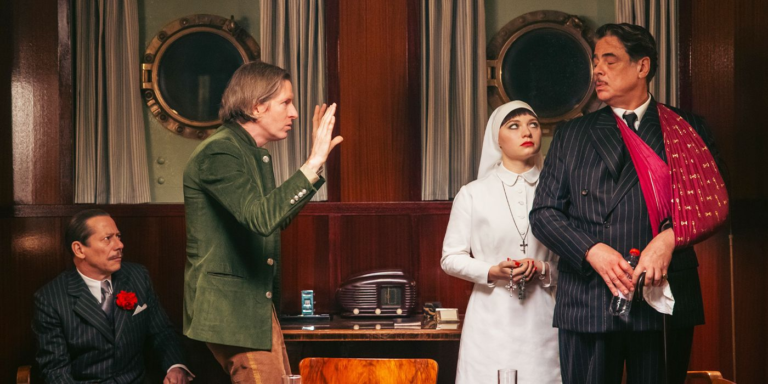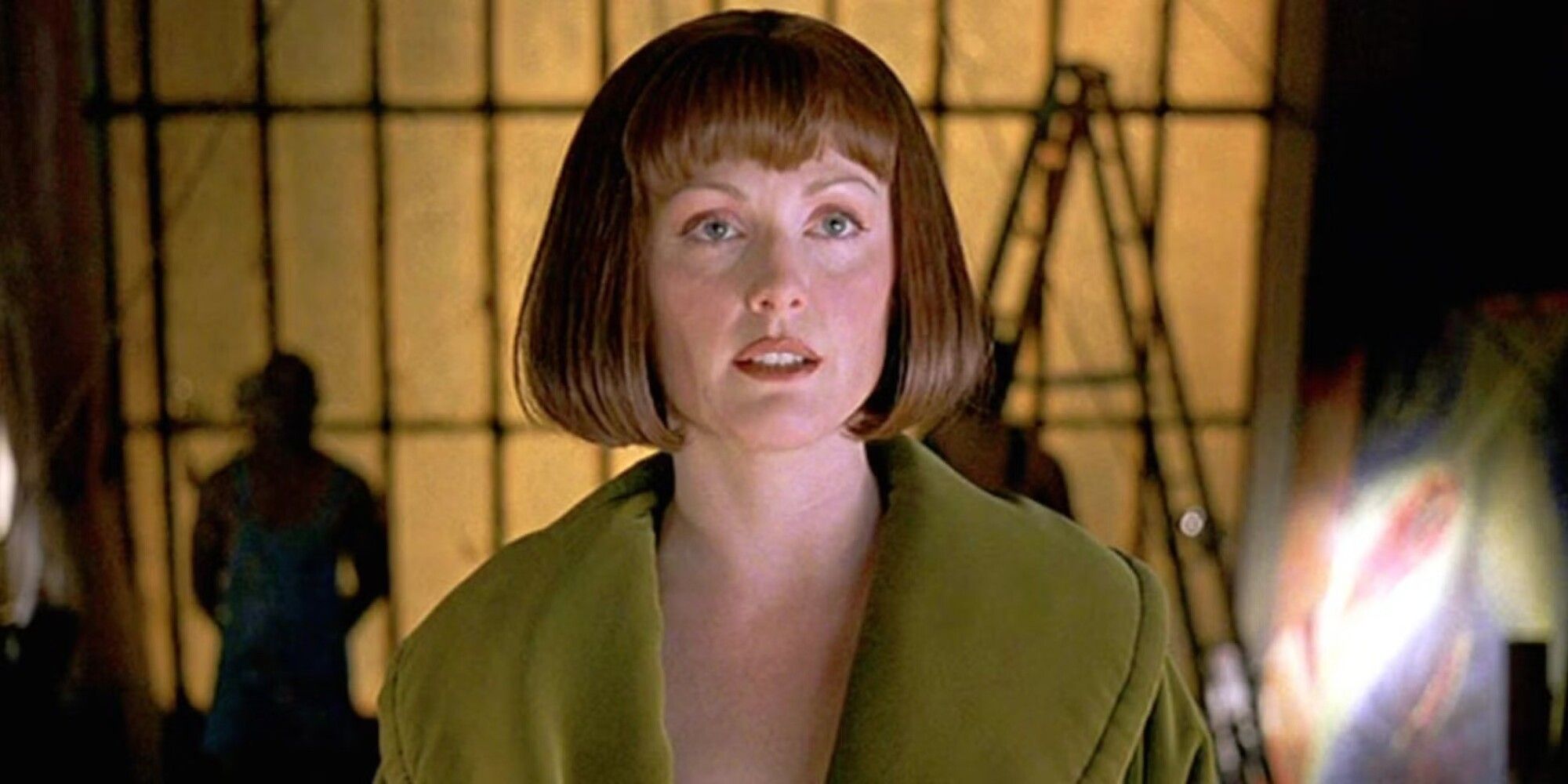The fact that Wes Anderson‘s new film, The Phoenician Scheme, marks the idiosyncratic writer-director’s first collaboration with Michael Cera, a fellow oddball who shares Anderson’s comedic wit, is something that feels like a misprint. Our wishes were granted with Cera’s inclusion in Anderson’s stock company of recurring actors, who joins a cast that includes many of his recurring players, such as Scarlett Johansson, Willem Dafoe, and Bryan Cranston, and we hope he’ll join the ranks of Bill Murray and Edward Norton as an Anderson mainstay.
It takes a particular skill set and aesthetic to fit into Anderson’s distinct style that everyone can identify, with some people viewing his dollhouse symmetry and wry humor as nothing more than superficial. For actors, you know it when you see it, and it becomes all the more puzzling when a no-doubt-about-it candidate like Julianne Moore has somehow never worked with the director. Wes, Moore still has her fastball—let’s get her a part.
Julianne Moore Matches Wes Anderson’s Unique Style
Like Wes Anderson, Julianne Moore is a well-established modern legend in her respective field with nothing to prove. Rather than cashing in on new trends, Moore continues to search out interesting material and work with the most renowned directors working today, from her reunion with Todd Haynes in May December and being the star of Pedro Almodovar‘s first English-language film in The Room Next Door. While it seems his days of contending for an Oscar have passed, Anderson continues to work steadily and gradually evolve his increasingly esoteric style that has grown to alienate mainstream audiences.
In a recent Collider interview, Anderson revealed he’s been trying to cast Jodie Foster for years, to no avail. Everyone has their own dream casting scenario for a new actor to be dropped in Anderson’s colorful and elaborate compositions and wistful reflections of life, but few feel more long-awaited than Julianne Moore, who has ostensibly worked with every auteur director of the last 30 years. In particular, Moore has thrived under the direction of Anderson’s contemporaries, like Todd Haynes, Paul Thomas Anderson, Gus Van Sant, and Joel and Ethan Coen. Actors who rose to prominence during this time, such as Owen Wilson, Cate Blanchett, Tilda Swinton, and Ralph Fiennes, are Anderson’s bread and butter.
Among all working actors, Moore is perhaps the most qualified and in tune with Anderson’s sensibilities. First and foremost, Moore, who is more celebrated as a stirring dramatic performer, is consistently funny in even the most dour films, as her brilliantly ham-fisted but captivating performance in May December blurred the line between camp and searing melodrama. When Anderson is at his best, he blends quirky humor with a sense of poignant yearning for a better life amid a dysfunctional family dynamic, requiring performances that can ground their comedy with melancholy.
How Julianne Moore Can Elevate Wes Anderson’s Style of Filmmaking
As a fearless performer, she’s comfortable imbuing intense moments of gravitas with humor that may seem woefully unintentional, such as her blowup in Magnolia, but she is always in complete control. In one of the funniest movies ever put to celluloid, The Big Lebowski, Moore nails every wry line reading as Maude Lebowski, a performance that could easily be transmuted to The Royal Tenenbaums or The Grand Budapest Hotel. While his lines call for wry delivery, sincerity is the key to the recognizable but hard-to-imitate Anderson tone, and Moore’s 30-year career is defined by an earnest warmth, even when she’s struggling to hold everything all together.
Wes Anderson’s films are known for their deep ensemble casts, but the director knows how to give proper treatment to a star at the center of the kaleidoscopic narrative, from Jason Schwartzman to Gene Hackman. Similar to his ’90s peers, Anderson reconfigures beloved stars of the past and present into never-before-seen versions of themselves. Considering that Moore is already versatile, to begin with, the possibilities are endless. Many of her most beloved movies, including the two P.T. Anderson films and The Kids Are Alright, are ensemble pieces, but Moore finds a way to stand out from the pack without fail. Ultimately, she’s just too magnetic and autonomous in her screen presence to be fully reined in by a director.
Anderson’s recent run of films, starting with The French Dispatch and Asteroid City, have been embraced by his diehards, but they have left casual audiences feeling cold. The consensus among this cohort is that he’s become too obsessed with his own style and has lost the sentimentality of Rushmore and Moonrise Kingdom. Even in a supporting part in a grand ensemble, Julianne Moore could be the perfect solution to re-capturing Anderson’s emotional magic of yesteryear. Her performances never feel like an artificial reflection of Anderson’s literary worldview but rather plucked from real-life experiences. At the same time, she gives every character the right amount of dramatic flair to never feel out of place inside one of Anderson’s meticulously staged interiors.


